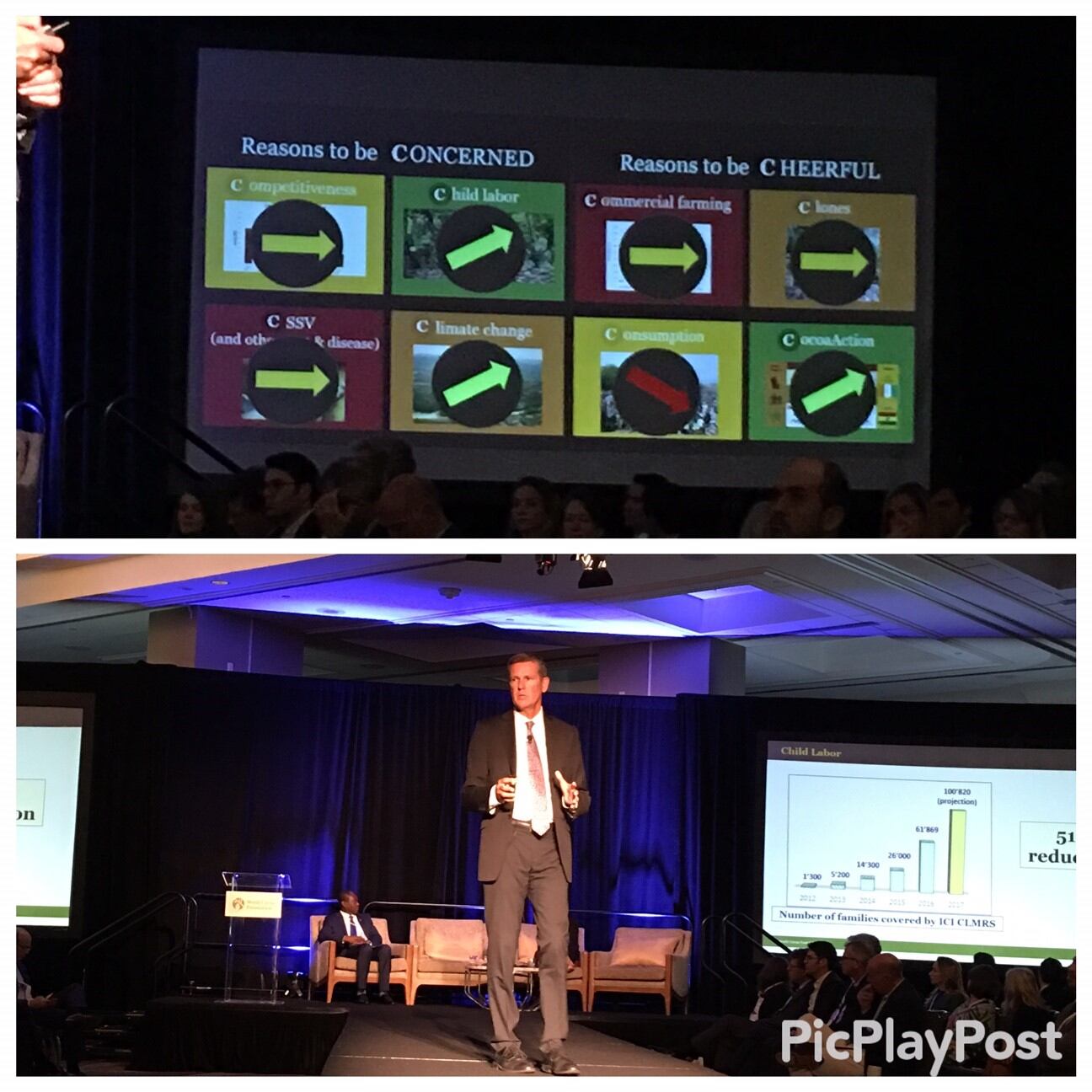Speaking at the World Cocoa Foundation’s (WCF's) Partnership in Washington D.C. this week, Barry Parkin, chief procurement and sustainability officer at Mars Incorporated, highlighted risks and opportunities in cocoa in 2017.
‘Price crisis’
Parkin said cocoa prices – which hit a four-year low on the London market in Q1 (£1,678 per MT) – meant the industry must go beyond its focus on productivity, marketing cocoa products and paying premiums.
“I think what we've learn this year and in conversations with all stakeholders is: That's not enough."
He said: "Clearly we are in a price crisis at the moment. The farm gate price of cocoa has fallen significantly and that is making it extremely difficult for smallholder farmers - it’s not good for anyone in the industry. This has become a huge issue."
Ivorian regulator Conseil du Café-Cacao recently confirmed the minimum producer price in Côte D’Ivoire for the main crop (October 2017 to March 2018) would remain at rates for last mid-crop at CFA 700 ($1.25) per kg.
This represents a 42% price drop compared to the last main crop.

Doing more to combat low prices
But what can companies really do about it?
According to the Mars procurement chief, the industry should go beyond existing efforts to support crop diversification for cocoa farmers and ensure cocoa is grown only on existing land.
"Diversifying what [farmers] do across multiple crops is going to be essential. It not only boosts their income, but it also boosts their resilience,” said Parkin.
He added: "The world does not need anymore land for cocoa. There’s enough land in use. We just need to increase the productivity on that land."
Higher yielding; more disease resistant crops could also support farmers, said the Mars chief.
"There are five clones that are in advanced stages of trial in Côte D'Ivoire which are showing to be very promising, up to two metric tons (MT) per hectare...about 0.5 MT per hectare is the average at the moment,” he said.
"These are in final stages of trials and will get to farmers within the next few years."
Indonesian cocoa
Parkin also expressed concern about production in Indonesia.
The world’s third largest cocoa producer Indonesia today accounts for 13% less of world cocoa production than four years ago.
Parkin said: "That's an indication of the crop not being competitive versus other land uses (e.g. rubber) and an indication of farmers choosing something different. That's clearly a reason for us to be concerned in the cocoa sector."
He added: “…We're starting to see the same indications in some other origins."
Indonesia produced an estimated 310,000 metric tons (MT) for cocoa year 2016/17 (October 2016 to September 2017) compared to 410,000 MT in 2012/13, according to the International Cocoa Organization (ICCO).
Cocoa is the nation’s third main agricultural export by value behind palm oil and rubber, and it is the world’s fourth largest cocoa processer, grinding an estimated 400,000 MT in 2016/17, according to the ICCO.
Child labor: ICI’s CLMRS
However, Parkin was positive on efforts to combat the worst forms of child labor in cocoa due to The International Cocoa Initiative (ICI's) Child Labor Monitoring and Remediation System (CLMRS).
"For the first time, we have an intervention showing real signs of promise...it's not going to solve it overnight, but will make a material difference."
ICI’s CLMRS was pioneered by Nestlé and is now used by four other firms including Cargill, Olam and Barry Callebaut.
"It's starting to get some real scale...we're getting towards 100,000 farmers and families covered by this. And early results show its making an impact,” said Parkin.
A Nestlé evaluation in 2017 (with a sample of 1,056 children) in cooperatives where the CLMRS was set-up between 2013 and 2015 indicated 51% of the children engaged in child labor from this sample were no longer doing so in July 2017.
